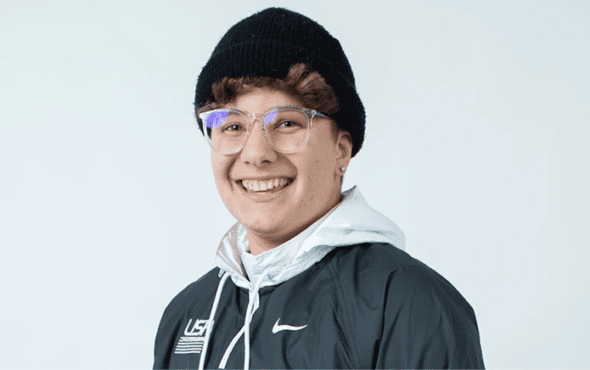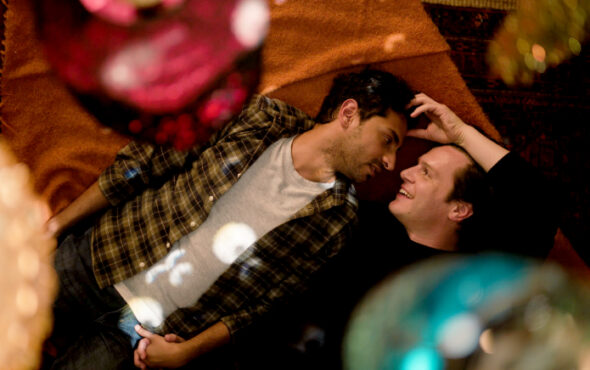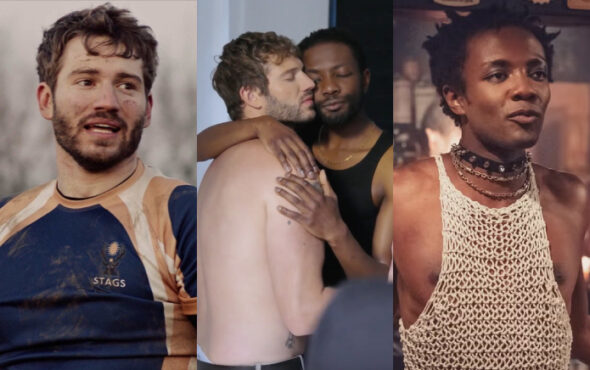
Alana Smith’s teenage years were not the stuff of Olympic dreams, growing up with a backdrop of family issues and struggles with mental health.
Yet the 20-year-old skateboarder overcame it all to become one of the most talked-about stars of the Tokyo 2020 Games, despite not winning a medal.
For Smith, the real prize came in being “authentically myself” at an Olympics that had never seen so many openly lesbian, gay, bisexual or transgender competitors.
Pictures of the American carrying a board showing “they/them” pronouns went viral, as Smith became one of the first Olympians to come out as non-binary – neither male nor female, using neither “she” nor “he”.
Though Smith came last in qualifying for women’s park skateboarding – doing tricks on steps, rails and ramps – they had a good Games.
“There’s nothing I regretted… even with getting last place,” Smith said on a video call from their home in Texas.
“I was happy coming out of the contest. And I… didn’t hold anything back or try to hide and be the picture that everybody wanted me to be. That was myself. And that was all that I wanted.”
Smith took up skateboarding aged eight, after seeing it on TV, and won a silver medal in 2013 at their first international competition in Barcelona, aged 12. But family issues led them to drop the sport for almost two years until early 2019.
“When my career kind of set off and I started making money… I was still at the time with my biological mom who suffered from substance abuse,” said Smith. “Skating… became a job because it was the only way that I could keep her around.”
“I also kind of had to… re-find my love for skating,” they said. “Because it was so hard to get it out of my head, just the amount of trauma that I had been through.”
Contacted by email, Ryonna Smith did not comment directly on substance abuse and the other allegations levelled.
“I’m sorry they feel this way, I love them with all my heart and wish them the very very best,” she wrote.
“I pray they have a strong support system and are surrounded by those who love and cherish them.”
HAPPINESS
In early 2019, Smith attempted suicide multiple times, struggling to process what they had been through with their mother. This time, their skateboard brought comfort instead of painful memories.
“(It) helped me realise that skating isn’t just about the contests or making money,” Smith said. “Maybe it’s just the love that I have for it and that, no matter what I was going through in life, I had a safe space to be in.”
Athletes’ mental health came to the fore this year when 24-year-old tennis champion Naomi Osaka withdrew from the French Open after boycotting post-match press duties, saying media questions affected her mental wellbeing.
Then gymnast Simone Biles sat out most Olympic events to focus on her mental health, citing “the twisties” – a rush of disorientation mid-air that made landing hazardous.
Athletes can now talk about mental health, Smith said, rather than having to bury it, “dig deep and push through”. And the bravery of both superstars in prioritising their wellbeing was an inspiration.
“Being somebody who struggled taking a step back, to choose my mental health over my profession, it’s really amazing to see people that are also doing it.”
Tokyo was also a landmark for having a record number of openly LGBTQ+ athletes, with website Outsports counting more than 180, including the first openly trans and non-binary medal winner, Quinn, who won gold with Canada’s women’s football team.
Coming out as non-binary on the global Olympic stage was the medal that Smith took home.
“I think just finally getting that weight off my chest, I felt so much happier,” they said.
Reporting by Rachel Savage; Editing by Lyndsay Griffiths and Hugo Greenhalgh
GAY TIMES and Openly/Thomson Reuters Foundation are working together to deliver leading LGBTQ+ news to a global audience.



